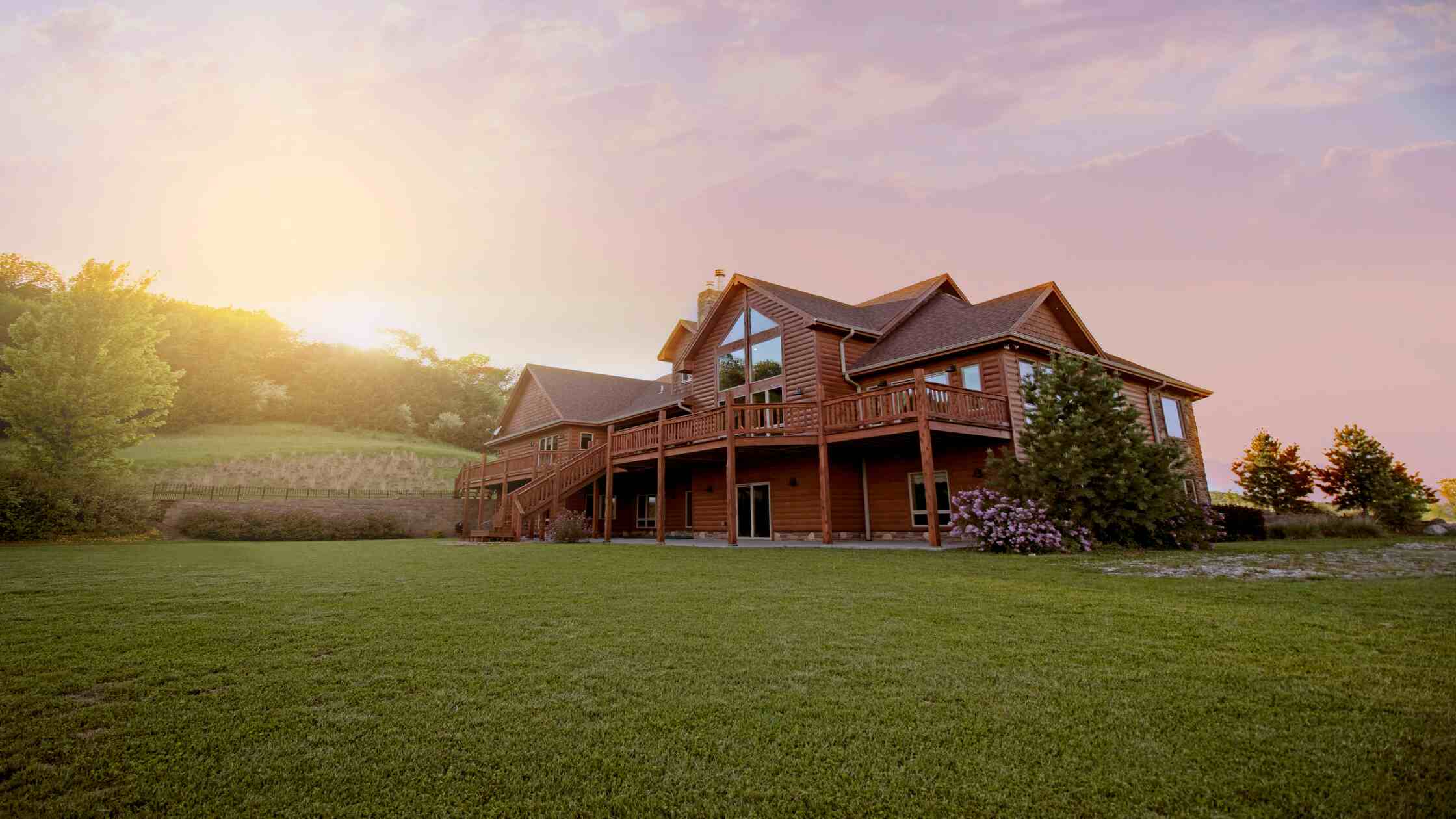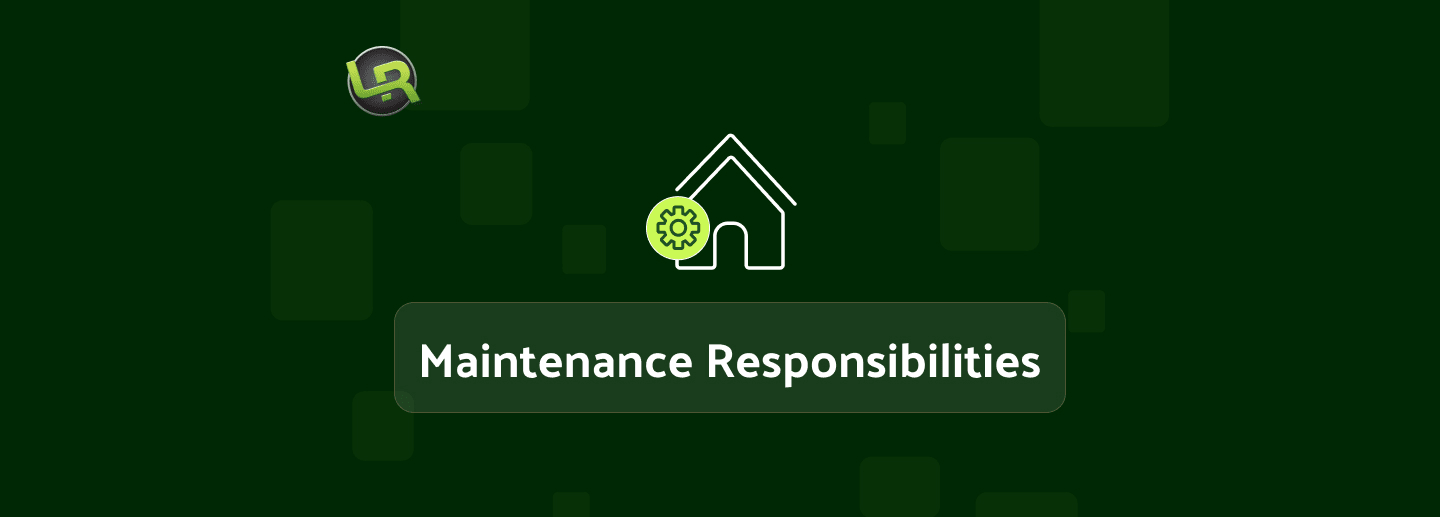Within today’s complete guide, we will explore the responsibilities, legal requirements, and practical aspects of property maintenance in Iowa rentals. Are you ready to learn more about that now? Don’t wait any longer, and scroll down immediately.

Quick Facts About Iowa Landlord-Tenant Laws
Understanding Landlord Responsibilities in Iowa Rentals
Iowa law outlines specific responsibilities for landlords to ensure rental properties meet basic habitability standards. These requirements promote safety and comfort for tenants while protecting the landlord’s property investment.
Keeping The Property Habitable
Do you know who is responsible for plumbing repairs in a rental house? It’s correct. The landlords should be in charge of those issues. For more information, Iowa landlords also have to:
- Provide working utilities, including water, heat, and electricity.
- Ensure structural elements, such as roofs and walls, are free from leaks.
- Maintain plumbing and heating systems in good working order.
- Supply locks and other security features to protect tenants.
Failure to meet these responsibilities or obligations may lead to legal consequences, including tenant compensation or repair deductions from rent.
HOA Rules and Housing Codes
Rental properties must comply with:
- Local housing codes set by Iowa municipalities.
- Any applicable HOA (Homeowners Association) rules governing shared property spaces.
Landlords are responsible for resolving HOA violations and ensuring tenants enjoy a compliant living environment.
Pest Control and Safety Standards
Landlords must detect:
- Pest infestations, such as rodents or insects, promptly upon notification by the tenant.
- Safety concerns, including smoke detectors and carbon monoxide alarms, which must be installed and maintained per state law.
Tenant Responsibilities for Repairs and Maintenance in Iowa Rentals

Is the tenant responsible for repairs? Yes, of course. Tenants also have specific obligations under Iowa law to keep rental units in a livable and clean condition.
Tenant’s Role in Keeping the Unit Clean and Safe
Tenants must:
- Dispose of garbage properly and keep the premises clean.
- Avoid activities that might damage the property or disturb neighbors.
Therefore, failure to complete your duties can lead to troublesome disputes or eviction notices.
Reporting Repairs to the Landlord
Based on Iowa landlord-tenant law repairs, the tenants are required to:
- Notify landlords promptly about issues requiring repairs, such as plumbing leaks or electrical malfunctions.
- Allow a reasonable time for the landlord to detect the root of the problem.
Documenting repair requests in writing can protect tenants in case of future disputes.
Handling Tenant-Caused Damage Beyond Wear and Tear
If a tenant coincidentally or intentionally causes damage beyond normal wear and tear, they may be required to:
- Cover repair costs, either directly or through deductions from their security deposit.
- Restore the unit/rental place to its original condition before moving out, excluding normal depreciation.
Repairs and Alterations in Iowa Rental Properties

Understanding the division of repair responsibilities and rules for modifications can prevent misunderstandings between landlords and tenants.
Small Repairs Tenants Handle
Tenants responsibility for repairs include several things, such as:
- Changing light bulbs and air filters.
- Keeping the property clean, organized, and free of hazards.
Major Repairs Landlords Cover
Landlords must address significant issues that impact habitability, such as:
- Fixing broken appliances included in the lease.
- Resolving structural damage or water leaks
These repairs must be completed promptly to avoid potential legal actions by tenants.
Rules for Tenant Modifications
Tenants wishing to make alterations must:
- Obtain written permission from the landlord.
- Revert the property to its original state before moving out unless agreed otherwise.
Unauthorized modifications can lead to deductions from the security deposit or additional charges.
Guide for Tenants to Request Repairs in Iowa
Requesting repairs from your landlord in Iowa is a straightforward process, but knowing how to approach it can help ensure timely and efficient resolutions. This guide breaks down the steps for tenants to request both minor and major repairs while staying compliant with Iowa landlord-tenant law repairs.
Step 1: Identify the Repair Type
- Minor Repairs: Leaky faucets, small damages.
- Major Repairs: Issues like heating failure or plumbing leaks.
Step 2: Notify Your Landlord
- Verbal Notice: Use for minor issues.
- Written Request: Required for major repairs or when no response is received.
The written requests should consist of a detailed description of the problem, the time issues started, photos or videos, and most importantly, your availability for repairs.
Step 3: Allow a Reasonable Time
Landlords must address repairs within a reasonable timeframe, especially urgent ones affecting habitability.
Step 4: Follow Up if Necessary
- Send a second written notice if no action is taken.
- Retain all communication records.
Step 5: Explore Legal Options
If the landlord fails to act:
- Repair and Deduct: Fix the issue yourself and deduct costs from rent (if you are wondering, “Can I withhold rent for repairs?”, then the answer is “you can”. Before that, you should follow the rules strictly and know your rights).
- File Complaints: Report to local housing authorities.
- Legal Action: Consult a tenant advocate or attorney.
Landlord’s Right to Access Iowa Rental Properties

Landlords in Iowa have the right to access rental units for specific purposes, but they must follow state laws regarding notice and timing.
Advance Notice Requirements for Landlords
Landlords must:
- Provide at least 24 hours' notice before entering the property, except in emergencies.
- Schedule visits during reasonable hours to minimize tenant disruption.
Emergency Access Rights for Iowa Landlords
In emergencies, such as fire or flooding, landlords can enter the property without prior notice to address immediate threats to safety or property.
Legal Framework for Iowa Maintenance and Repair Obligations
Iowa landlord-tenant law repairs outline the duties and legal remedies for landlords and tenants when maintenance issues arise.
Iowa State Statutes Governing Landlord and Tenant Duties
Relevant laws include:
- Iowa Code Chapter 562A: Governs the rights and obligations of landlords and tenants.
- Housing Maintenance and Occupancy Codes: Local ordinances supplementing state law.
Legal Remedies for Non-Compliance
If a landlord or tenant fails to meet their legal obligations, remedies may include:
- For Tenants: Rent withholding, repair-and-deduct options, or legal action.
- For Landlords: Eviction proceedings, security deposit deductions, or claims for damages.
Bottom Line
Iowa law strikes a careful balance between landlord and tenant repair responsibilities. With clear guidelines for maintenance, property access, and tenant obligations following the Iowa landlord-tenant law repairs, compliance ensures a smoother rental experience for everyone involved.
By understanding and fulfilling their respective obligations, both parties can avoid disputes and legal complications. Do you have any other questions? Please leave a comment right below and we’ll come back to help ASAP.



